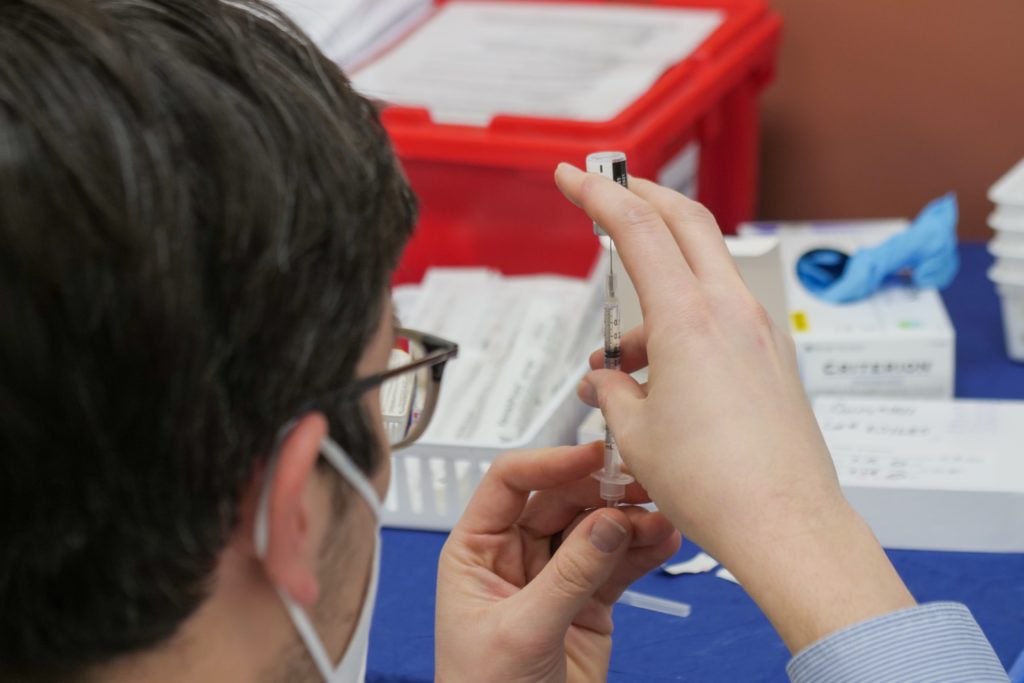
Exploring COVID-19 vaccines – manufacturing and supply chain
A spread of COVID-19 vaccines has arrived to save us from that particular novel coronavirus. Just in the nick of time.
Their development has been a triumph for the scientific community. Partly because they took a fraction of the time to develop by comparison with the previous fastest vaccine.
So, is that it? COVID crisis solved? Why aren’t COVID-19 vaccine manufacturing contracts being handed out to every biotech engineering firm in the world?
Because, as any engineer will tell you, creating a product in theory is only the first step in getting it to where it’s needed most.
COVID-19 vaccine manufacturing challenges
It is not only a case of scaling up vaccine production. Despite what some may have claimed, it isn’t possible to simply hand out contracts for vaccine manufacturing or distribution to any old company.
There are significant challenges at every stage of the COVID vaccine supply chain. Here are just a few of them:
1) Bill of materials
Any fresh-faced recruit starting their first engineering job knows about bills of materials. For the COVID vaccine, the list of ingredients required is a tricky one.
Taking the two currently best-known vaccines – the Pfizer-BioNTech and Moderna vaccines – it’s important to realise that they call for similar but not identical ingredients, featuring:
- mRNA
- Four specific types of fatty molecules called lipids
- Buffer solutions
Creating mRNA, in particular, is not something that you can put out an advert for temporary manufacturing staff recruitment and hope to accomplish. It requires actually making DNA as part of the process.
Not even many specialist bioscience firms can handle this.
2) Supply chains
Our two main example vaccines have supply chains which are largely separate from each other:
- Pfizer is based in the United States. They source all of their lipids from a company in the UK and have recently acquired an Alabama-based firm to add to their other ingredient sources, which are mainly US-based.
- Moderna is based in Europe. They source many of their key ingredients from companies in Germany, Switzerland, and France.
From a global point of view, there is the advantage of redundancy here. If something holds up one supply chain, the other can continue to manufacture vaccines. It’s also a big plus because the US seems intent on not shipping completed vaccines elsewhere just yet.
3) COVID-19 vaccine manufacturing
The timeframe for vaccine ingredients being originally sourced until they are filled and finished into vials is currently in the order of several weeks.
For Pfizer, that original source is their huge laboratory and manufacturing complex in Missouri where they have E-coli bacteria cloning DNA plasmids. These will later become huge quantities of mRNA to make the vaccine.
For Moderna, there are four production lines – three in Switzerland, one in the US – and a gigantic plant in Massachusetts.
4) Some assembly required
The mRNA and lipids then need to be combined into lipid nanoparticles. This is an immensely complicated process.
Finding the right experts to do it would be a serious challenge for any science or engineering recruitment agency. It’s estimated that only a few hundred people in the entire world know how to make this work.
5) Packaging
Transporting the finished vaccines is a not inconsequential challenge. Even the shipping boxes required are very specific – manufactured by only two companies in the world (one based in a tiny village in the UK) in the case of the Pfizer vaccine.
That’s not to mention things like the borosilicate glass vials required to hold the finished vaccine, stoppers, and other elements of the packaging.
6) Global Distribution
Anyone with logistics knowledge, or who has held manufacturing manager or production manager jobs for any length of time, will understand that global distribution networks can be immensely complicated.
The supply chains involved are likely to become even more complicated as more countries start using their own local industry to produce the vaccines as and when they receive permission to do so.
Additional requirements of the vaccine include the need for temperature control and distribution to a wide range of specialist points of care.
In Germany alone, there are 25 distribution centres and 16 states independently organising the final-stage delivery of the vaccines. Many have outsourced this to competing logistics companies.
Engineers and the COVID-19 vaccine
Scaling up COVID-19 vaccine development, as well as overcoming the manufacturing and distribution challenges involved, is going to call for growth in the number of people taking up biochemical engineer, chemical engineer, and process engineer jobs around the world.
It is also going to call for project managers, clinicians, and many other kinds of specialists – including in logistics – to make sure everyone gets vaccinated.
But now that the vaccines are ready and roll out has begun fairly successfully – even in the UK – things are looking more hopeful for all of our post-COVID future.
Are you looking for a challenging job of your own?
Ernest Gordon is a specialist engineering recruitment company. Every day, we match candidates to the construction, engineering or manufacturing jobs they are looking for.
Let’s have a chat today about your experience and the job you have in mind.